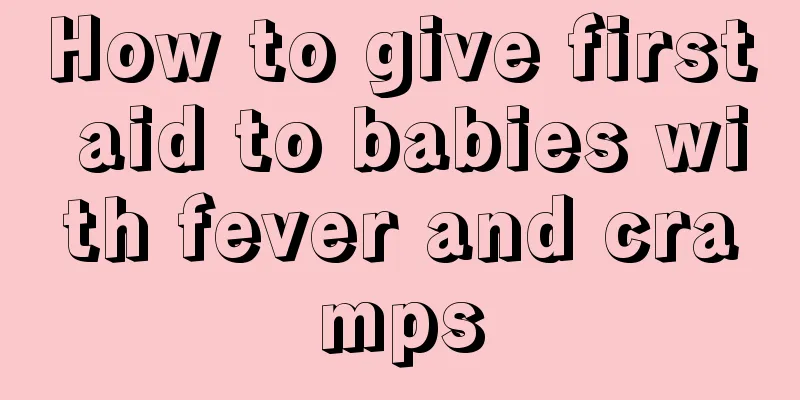What to do if your child has rhinitis and nosebleeds

|
If a child has a nosebleed due to rhinitis, the first thing to do is to understand what type of rhinitis it is and then provide symptomatic treatment. Only by actively treating the primary disease can you avoid frequent nosebleeds. In addition, you must prevent colds and other respiratory diseases in daily life, keep the nasal cavity moisturized, avoid dryness, and educate your children not to pick their noses. 1. Prevent colds and other respiratory diseases. Now is the peak season for upper respiratory tract diseases. If children suffer from infectious diseases such as colds, tonsillitis, pneumonia or mumps, the blood vessels in the nasal mucosa will become congested and swollen, and even the capillaries will rupture and bleed. Therefore, once a child suffers from these diseases, he or she should be treated promptly. 2. Apply oil to prevent nose bleeding: Nosebleeds need to be prevented, especially in the dry season. When the child's nasal cavity is dry, you can use paraffin oil or glycerin nasal drops, or wipe the nasal cavity with a cotton ball dipped in clean water. 3. Control children’s strenuous activities to avoid nasal injuries. Nosebleeds in children may be caused by some local inflammation of the nasal cavity, such as acute and chronic rhinitis, sinusitis, and strenuous activities can cause the blood vessels in the nasal mucosa to dilate, or cause the nasal cavity to itch and the child to pick at it, resulting in nosebleeds. Children should develop good habits and not pick their noses when they itch. 4. Pay attention to your diet. The weather is dry in autumn and winter, so you must pay attention to your diet. Children should avoid eating too much fried or greasy food, and should eat more fresh vegetables and fruits. They should also drink plenty of water or cool drinks to replenish water. If necessary, they can take appropriate amounts of vitamins C, A, and B2. |
<<: What to do if your child wets the bed
>>: How to treat children’s gastrointestinal dysfunction?
Recommend
How to educate children who hit others
If a child hits others, it is something that shou...
What should we pay attention to when treating dermatitis in children?
I believe that many parents will encounter dermat...
What to do if your seven-month-old baby has a lot of eye mucus
We all know that if a person has no eye problems,...
Is the Qingrezhike oral liquid effective for children?
Children's Qingrezhike Oral Liquid is a relat...
What to do if your baby has keratitis
The cornea is a very important part of the human ...
What are the symptoms of children's intellectual disability?
There is no difference between children when they...
How to protect children's teeth
In our daily life, we always see many children wi...
Massage is effective for treating bloating in children
Children's stomach bloating is mainly caused ...
Newborn baby keeps red face?
After the baby is born, parents need to be extra ...
The child's poop is white
Everyone knows that when children are young, beca...
What is the reason why a three-year-old baby suddenly stutters?
When the child reaches two or three years old, he...
How to grow taller for adolescent girls
Puberty is like a training class. Many changes wi...
Factors that affect children's nutrient absorption, the hazards of malnutrition in children, and dietary combinations for children's nutrition
The healthiest growth of children is the greatest...
Why is the child's bottom red? Scientific care for diaper rash
If your baby has a red butt, then you need to che...
How to correct your baby's tiptoeing when learning to walk
We may have all seen children learning to walk. C...









